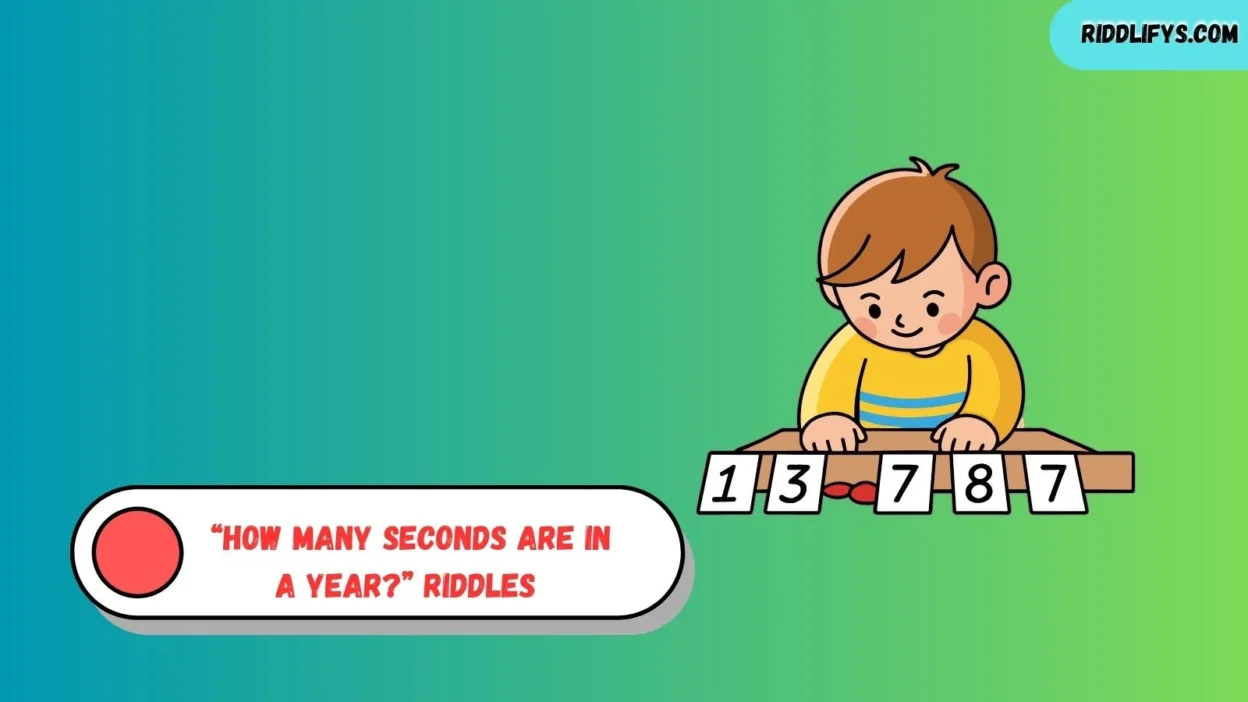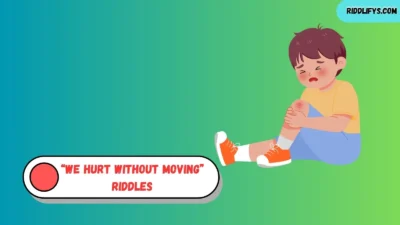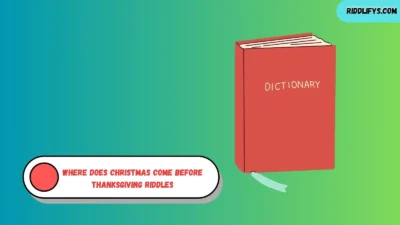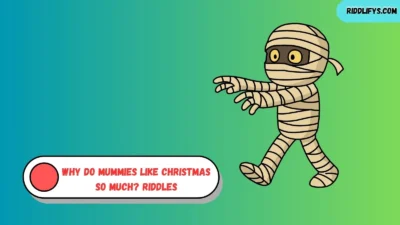Welcome to the ultimate 2025–2026 “How Many Seconds Are in a Year?” Riddles collection, where time, wit, and creativity collide! Ever been asked, “How many seconds are in a year?” — and realized it’s not about math, but clever thinking? You’re in the right place!
In this article, you’ll find 200+ mind-bending riddles around time, calendars, logic, and everyday fun. Each riddle comes with a hint and an answer, designed to spark curiosity, challenge your IQ, and make you smile.
Whether you’re hosting a quiz, teaching kids, or looking for tricky riddles for social media — these time riddles are perfect for 2025–2026 learners and thinkers.
Time & Calendar Riddles
- Riddle: How many seconds are in a year?
Hint: Think of the calendar, not the clock.
Answer: 12 — one for January 2nd, February 2nd, etc. - Riddle: What month has 28 days?
Hint: Not just one.
Answer: All of them! - Riddle: What comes once in a minute, twice in a moment, but never in a thousand years?
Hint: It’s a letter.
Answer: The letter “M.” - Riddle: What month of the year has 31 days?
Hint: More than one does!
Answer: January, March, May, July, August, October, and December. - Riddle: If February has 28 days, how many months have 30 days?
Hint: Count carefully.
Answer: 11 months. - Riddle: When does tomorrow come before today?
Hint: It’s not time travel!
Answer: In a dictionary. - Riddle: What can travel around the world while staying in a corner?
Hint: It’s small and sticky.
Answer: A stamp. - Riddle: Which day is the start of the week but also the end?
Hint: It’s the same day depending on perspective.
Answer: Sunday. - Riddle: What time is it when an elephant sits on your fence?
Hint: Think damage.
Answer: Time to get a new fence! - Riddle: What gets wetter the more it dries?
Hint: It’s in your bathroom.
Answer: A towel.
Funny Logic Riddles
- Riddle: What runs but never walks, has a bed but never sleeps?
Hint: Natural and flowing.
Answer: A river. - Riddle: What has hands but can’t clap?
Hint: It tells time.
Answer: A clock. - Riddle: What has a face and two hands but no arms or legs?
Hint: It ticks.
Answer: A clock again! - Riddle: What time is it when your clock strikes thirteen?
Hint: Think beyond logic.
Answer: Time to buy a new clock. - Riddle: What flies without wings and passes without moving?
Hint: You can’t stop it.
Answer: Time. - Riddle: If two’s company and three’s a crowd, what are four and five?
Hint: Basic math.
Answer: Nine. - Riddle: What begins with T, ends with T, and has T in it?
Hint: You drink from it.
Answer: A teapot. - Riddle: What comes down but never goes up?
Hint: Weather-related.
Answer: Rain. - Riddle: What breaks but never falls, and what falls but never breaks?
Hint: Think of times of day.
Answer: Day breaks and night falls. - Riddle: What can be measured but has no length or width?
Hint: Think in seconds.
Answer: Time.
Tricky “Second” Riddles
- Riddle: What is the second letter of “second”?
Hint: Simple spelling test.
Answer: E. - Riddle: If there are 60 seconds in a minute and 60 minutes in an hour, how many seconds in 2 hours?
Hint: Multiply.
Answer: 7,200 seconds. - Riddle: I’m short when I’m old and tall when I’m young.
Hint: Light me up.
Answer: A candle. - Riddle: What’s faster, hot or cold?
Hint: Think figuratively.
Answer: Hot, because you can catch a cold. - Riddle: What has a neck but no head?
Hint: Found on your dining table.
Answer: A bottle. - Riddle: What occurs twice in a week, once in a year, but never in a day?
Hint: It’s a letter again.
Answer: The letter “E.” - Riddle: What word is spelled wrong in the dictionary?
Hint: The answer’s in the question.
Answer: “Wrong.” - Riddle: Which is heavier — a pound of feathers or a pound of bricks?
Hint: Trick question!
Answer: They weigh the same. - Riddle: What can fill a room but takes up no space?
Hint: You can see it but not touch it.
Answer: Light. - Riddle: What has a beginning, middle, and end but no life?
Hint: Storytime!
Answer: A book.
Classic IQ Riddles
- Riddle: The more of this you take, the more you leave behind.
Hint: You make them when walking.
Answer: Footsteps. - Riddle: What has keys but can’t open locks?
Hint: Musical.
Answer: A piano. - Riddle: What belongs to you but others use it more?
Hint: You hear it daily.
Answer: Your name. - Riddle: I shave every day but my beard stays the same.
Hint: Occupation clue.
Answer: A barber. - Riddle: What has 13 hearts but no organs?
Hint: You can play with it.
Answer: A deck of cards. - Riddle: If you drop me, I’m sure to crack, but give me a smile and I’ll smile back.
Hint: Reflect on this.
Answer: A mirror. - Riddle: What gets sharper the more you use it?
Hint: Not metal.
Answer: Your brain. - Riddle: What has cities but no houses, rivers but no water?
Hint: Found in your backpack.
Answer: A map. - Riddle: What can you catch but not throw?
Hint: Common in winter.
Answer: A cold. - Riddle: What has one eye but can’t see?
Hint: Used for sewing.
Answer: A needle.
Math & Number Riddles
- Riddle: What comes after 11 but before 13?
Hint: It’s not a trick.
Answer: 12. - Riddle: I am an odd number. Take away one letter and I become even. What number am I?
Hint: Think of spelling.
Answer: Seven. - Riddle: If you multiply me by any number, the answer always stays the same.
Hint: Neutral identity in math.
Answer: Zero. - Riddle: How many sides does a circle have?
Hint: Think geometrically.
Answer: Two — inside and outside. - Riddle: What 3 numbers give the same result when added or multiplied?
Hint: Simple math pattern.
Answer: 1, 2, and 3. - Riddle: I’m greater than God, more evil than the devil. The people with low-income have me, the rich need me. If you eat me, you’ll die.
Hint: Logical play on words.
Answer: Nothing. - Riddle: Divide 30 by half and add 10. What do you get?
Hint: Not 25.
Answer: 70. - Riddle: What number doubled is twice itself and half of 16?
Hint: Multiply mentally.
Answer: 4. - Riddle: If a dozen eggs cost $1.20, how much do 100 cost?
Hint: Simple ratio.
Answer: $10. - Riddle: I am a three-digit number. My tens digit is five more than my ones digit, and my hundreds digit is eight less than my tens digit.
Hint: Think small.
Answer: 194.
Animal & Nature Riddles
- Riddle: I have four legs but can’t walk.
Hint: Common household item.
Answer: A table. - Riddle: What has a tail and a head but no body?
Hint: Think money.
Answer: A coin. - Riddle: I can fly without wings. I cry without eyes. Wherever I go, darkness flies.
Hint: Natural force.
Answer: A cloud. - Riddle: What has a heart that doesn’t beat?
Hint: Found in gardens.
Answer: An artichoke. - Riddle: What is black when you buy it, red when you use it, and gray when you throw it away?
Hint: Used for cooking.
Answer: Charcoal. - Riddle: The more you take, the more you leave behind.
Hint: Think of tracks.
Answer: Footsteps. - Riddle: I am full of holes but still hold water.
Hint: Found in kitchens.
Answer: A sponge. - Riddle: I’m tall when I’m young and short when I’m old.
Hint: Burn me.
Answer: A candle. - Riddle: I go up but never come down.
Hint: Everyone experiences it.
Answer: Your age. - Riddle: What gets bigger the more you take away?
Hint: It’s empty inside.
Answer: A hole.
School & Knowledge Riddles
- Riddle: What kind of room has no doors or windows?
Hint: You might find it in science.
Answer: A mushroom. - Riddle: What word becomes shorter when you add two letters to it?
Hint: Think literal.
Answer: Short. - Riddle: I have words but never speak.
Hint: Found in every school.
Answer: A book. - Riddle: What has many keys but can’t open a lock?
Hint: Produces music.
Answer: A piano. - Riddle: What’s always in front of you but can’t be seen?
Hint: Think time.
Answer: The future. - Riddle: What invention lets you see through walls?
Hint: Every classroom has them.
Answer: Windows. - Riddle: The more you take, the smarter you get.
Hint: Students do this daily.
Answer: Notes. - Riddle: I’m tall when I start but shorter at the end of the day.
Hint: School supply.
Answer: A pencil. - Riddle: What is always coming but never arrives?
Hint: Time-based.
Answer: Tomorrow. - Riddle: What’s black, white, and read all over?
Hint: Found in libraries.
Answer: A newspaper.
Technology & Modern Life Riddles
- Riddle: I have keys but no doors.
Hint: You’re probably typing on it.
Answer: A keyboard. - Riddle: I have a screen but no eyes.
Hint: Found in every home.
Answer: A television. - Riddle: I can be charged but I’m not guilty.
Hint: Pocket device.
Answer: A smartphone. - Riddle: I have many bytes but no teeth.
Hint: Related to computers.
Answer: Data. - Riddle: I can store memories but have no mind.
Hint: Portable tech.
Answer: A USB drive. - Riddle: What has a ring but no finger?
Hint: Always calling.
Answer: A phone. - Riddle: I’m invisible but connect everyone.
Hint: You’re using me now.
Answer: The internet. - Riddle: I have a home button but no house.
Hint: Touch me.
Answer: A smartphone. - Riddle: I’m full of apps but not a meal.
Hint: Modern gadget.
Answer: A tablet. - Riddle: I crash often but never get hurt.
Hint: Tech humor.
Answer: A computer.
Family & Relationship Riddles
- Riddle: The more you share me, the smaller I get.
Hint: Emotional.
Answer: A secret. - Riddle: I have parents but no children.
Hint: Language clue.
Answer: A word. - Riddle: What’s yours but used more by others?
Hint: Common riddle favorite.
Answer: Your name. - Riddle: I have a mother and a father but am not born.
Hint: Think celestial.
Answer: The Earth. - Riddle: Who has many brothers but no sisters?
Hint: Look up.
Answer: The stars. - Riddle: I can make you cry, smile, or feel loved without speaking.
Hint: Found in phones.
Answer: Messages. - Riddle: What kind of band never plays music?
Hint: Worn daily.
Answer: A wedding ring. - Riddle: I’m invisible but bind people.
Hint: Emotional connection.
Answer: Love. - Riddle: What goes up when love goes down?
Hint: Think metaphorically.
Answer: Tears. - Riddle: What do brothers and sisters share but not at the same time?
Hint: Think about birthdays.
Answer: Parents.
“Seconds” & Time-Twist Riddles
- Riddle: How many seconds are there in a leap year?
Hint: Multiply it out.
Answer: 31,622,400 seconds. - Riddle: If today is Sunday, what day will it be after 100 hours?
Hint: 100 ÷ 24.
Answer: Thursday. - Riddle: I am the beginning of everything, the end of time and space.
Hint: Alphabet clue.
Answer: The letter “E.” - Riddle: If one clock takes 2 seconds to tick twice, how long for 10 ticks?
Hint: Gaps between ticks.
Answer: 9 intervals = 18 seconds. - Riddle: I’m measured in seconds but can last a lifetime.
Hint: Emotional.
Answer: A moment. - Riddle: What moves faster — time or light?
Hint: Depends on your heart.
Answer: Time, when you’re happy. - Riddle: I’m never early, never late — always on time.
Hint: A paradox.
Answer: A clock. - Riddle: I have a face but no eyes, I measure life as it flies.
Hint: Daily companion.
Answer: A watch. - Riddle: If you were born in December, when is your half-birthday?
Hint: Count six months forward.
Answer: June. - Riddle: I can stretch but never shrink, tick but never talk.
Hint: Think rhythm.
Answer: Time itself.
Conclusion
And there you have it — 200+ riddles for 2025–2026, each testing your brain, humor, and logic! From “How many seconds are in a year?” to modern-day time puzzles, every riddle teaches you to think differently.
These riddles are perfect for quizzes, schools, parties, and social media content. Remember, riddles aren’t just for kids — they’re mini workouts for your brain.
So next time someone says “You’ve got a second?” — challenge them with one of these riddles instead!
FAQs
Q1: Why is “How many seconds are in a year?” such a popular riddle?
A: It’s clever wordplay that tricks logical thinkers — the answer “12 seconds” makes people smile every time.
Q2: Can these riddles be used in classrooms or quizzes?
A: Absolutely! They’re educational, funny, and ideal for testing reasoning skills.
Q3: Are all these riddles family-friendly?
A: Yes — suitable for kids, teens, and adults alike.
Q4: How can riddles help the brain?
A: They improve cognitive flexibility, creativity, and problem-solving skills.
Q5: What’s special about 2025–2026 riddles?
A: They include modern, tech-inspired, and current-generation wordplay for today’s learners.

William Morie is a passionate innovator and creative mind, driven by purpose and imagination. He believes in turning vision into action and ideas into lasting success.



